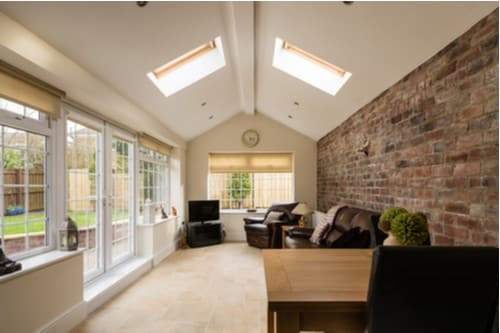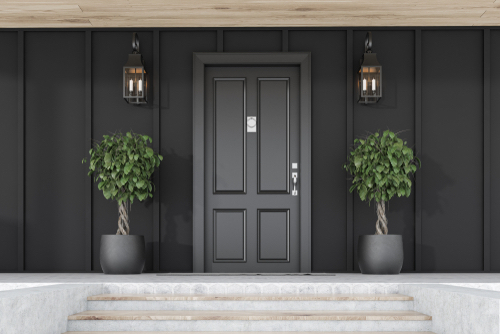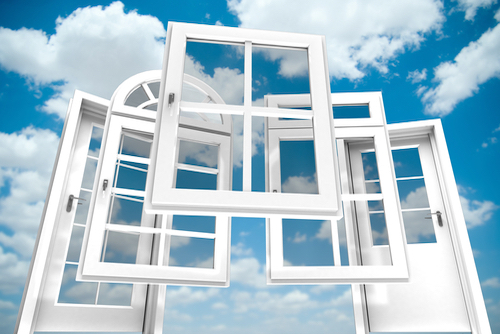Regarding commercial spaces, the choice of doors goes beyond mere aesthetics.
Commercial doors play a pivotal role in ensuring the safety and security of the premises while also making a statement about the business’s style and professionalism.
This guide will explore the crucial aspects of choosing commercial doors that balance safety and style, helping business owners make informed decisions that enhance their establishments’ security and visual appeal.
Understanding the Importance of Commercial Doors
Commercial doors are the first defense against unauthorized access, weather elements, and potential security threats.
They also contribute significantly to the overall aesthetic of a business, making them a crucial element in creating a positive first impression. Striking the right balance between safety and style is essential for any commercial establishment.
Accessibility is a crucial consideration for commercial doors, especially for businesses that serve the public. Ensure that your doors comply with the Americans with Disabilities Act (ADA) standards, which include considerations for width, threshold height, and ease of operation.
Choosing doors with automatic openers or wide clearance can enhance accessibility for all customers and employees.
Security Features
The primary function of a commercial door is to provide security, and selecting doors with robust security features is paramount. Safety is paramount for any commercial space, and the doors are the first line of defense.
Opt for doors with robust security features such as multi-point locking systems, heavy-duty hinges, and shatter-resistant glass.
Consider the level of foot traffic, the value of the assets within the establishment, and the specific security requirements to determine the appropriate level of protection. Consider the following security aspects when choosing commercial doors:
Material Selection
Opt for sturdy materials such as steel or reinforced glass for maximum durability and resistance to forced entry. Commercial doors come in various materials, each with its advantages.
Steel doors are known for their strength and durability, providing excellent security. Glass doors, on the other hand, offer transparency and a modern aesthetic. Wooden doors give a classic and warm look but may require more maintenance.
Consider the nature of your business, security needs, and the desired ambiance when selecting the material.
Locking Mechanisms
Choose advanced locking systems, such as electronic key card access or biometric scanners, to enhance security and control access.
Depending on the nature of the commercial space, fire-rated doors may be a legal requirement. These doors are designed to resist the spread of fire and smoke, providing crucial time for evacuation and minimizing property damage.
Check local building codes to ensure compliance and choose fire-rated doors with the appropriate fire-resistance rating for your establishment.
Fire Resistance
In specific industries, fire-resistant doors are a necessity. Ensure that the selected doors meet or exceed relevant fire safety standards.
Types of Commercial Doors
Commercial doors come in various types, each designed for specific purposes. Understanding the options available can help business owners make informed decisions based on their unique needs.
The appearance of commercial doors contributes to the establishment’s overall aesthetic and influences your brand’s perception.
Choose doors that align with your brand image and the architecture of the building. Consider customization options such as finishes, colors, and branding elements to create a cohesive and visually appealing entrance.
Swinging Doors
Traditional swinging doors are commonly used in various commercial settings. They are available in single or double configurations and can be customized for different materials and finishes.
Sliding Doors
Ideal for spaces with limited floor space, sliding doors offer a modern and space-efficient solution. They are often used in retail, healthcare, and hospitality settings.
Revolving Doors
Prevalent in high-traffic areas, revolving doors provide a seamless flow of people while maintaining energy efficiency by minimizing air exchange.
Overhead Doors:
Commonly found in warehouses and industrial settings, overhead doors offer easy access to large vehicles and heavy equipment.
Durability and Maintenance
Commercial doors face heavy usage, so durability is a crucial consideration. Choose materials and finishes that can withstand the demands of daily operation.
Opt for doors with minimal maintenance requirements to ensure longevity and cost-effectiveness. Commercial doors experience high use levels, so durability is a crucial factor. Select doors resistant to wear and tear, corrosion, and the elements.
Regular maintenance is essential to prolong the lifespan of your doors, so choose materials and finishes that are easy to clean and maintain.
Weather Resistance
Depending on the climate, select doors that can withstand extreme weather conditions, such as heavy rain, snow, or high winds.
Depending on the geographical location of your commercial space, exposure to harsh weather conditions may be a concern. Select doors designed to withstand elements such as wind, rain, and extreme temperatures.
Weather-resistant finishes and materials can prevent deterioration and maintain the integrity of the doors over time.
Corrosion Resistance
In coastal areas or regions with high humidity, doors with corrosion-resistant materials, like stainless steel or aluminum, are preferable.
Aesthetic Considerations
While security is paramount, the visual appeal of commercial doors should not be overlooked. The appearance of a business’s entrance contributes to its overall branding and customer perception.
Consider the following aesthetic factors:
Material and Finish
Choose materials and finishes that align with the overall design theme of the business. Modern establishments may opt for sleek glass doors, while industrial spaces may benefit from the ruggedness of steel.
Color and Style
The color and style of the doors should complement the building’s architecture and branding. Consider how the doors integrate with the overall design scheme to create a cohesive and professional look.
Accessibility and Compliance
Commercial doors must adhere to accessibility standards to ensure everyone, including individuals with disabilities, can enter and exit the premises comfortably.
Consider the following factors related to accessibility:
Width and Clearance
Ensure that doors provide sufficient width and clearance for wheelchair users and comply with local accessibility regulations.
Automatic Doors
Consider installing automatic doors equipped with sensors for hands-free operation in high-traffic areas, improving accessibility and convenience.
Compliance with Building Codes
Familiarize yourself with local building codes and regulations to ensure the selected doors comply with safety and accessibility standards.
Energy Efficiency
Energy efficiency is a growing concern for businesses aiming to reduce environmental impact and operational costs. Selecting doors with good insulation properties can contribute to energy conservation.
Look for doors with features such as:
Insulated Glass
Opt for double or triple-pane insulated glass to improve thermal efficiency using glass doors.
Weather Stripping
Ensure doors have adequate weather stripping to prevent drafts and maintain a consistent indoor temperature.
Energy-Efficient Frames
Choose door frames from good insulation properties, such as fiberglass or vinyl.
Installation and Professional Assistance
Proper installation is crucial to the performance and longevity of commercial doors. Consider hiring professionals with expertise in commercial door installation to ensure that doors are correctly fitted and operate smoothly.
Professional assistance can also help select the most suitable doors based on the business’s requirements. Installing commercial doors is a critical step that impacts both safety and functionality.
Engage professional installers with experience in commercial settings to ensure proper fitting and compliance with building codes. Professional assistance can also help choose the right type of doors for specific applications and needs.
Conclusion
Choosing commercial doors that seamlessly blend safety and style is a multifaceted decision that requires careful consideration of various factors.
Business owners must prioritize security features, durability, and compliance with accessibility standards while considering the aesthetic aspects contributing to a positive customer experience.
By taking a holistic approach and seeking professional advice, businesses can enhance their entrances’ overall functionality and appearance, making a lasting impression on visitors and customers alike.
Remember, the right commercial doors safeguard your establishment and visually represent your business ethos and professionalism.






